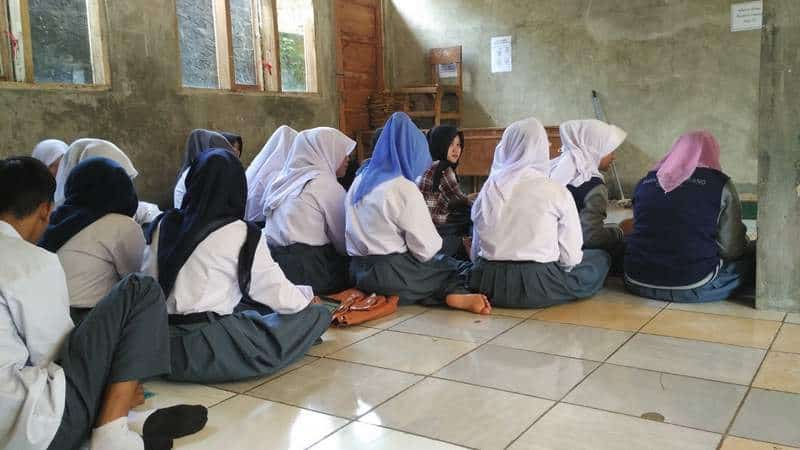Generational poverty is a term used for families that have experienced at least two generations of poverty. Such a situation can affect every aspect of their lives, whether physical, social, emotional, or mental. Children born in poverty are the ones most affected by this scenario. They think it is their fault and feel shame, believing people will judge them. Other causes of generational poverty include lack of education, in which students are three times more likely to drop out of early education. Teen pregnancy is also common among such families, due to which they let go of early education. In the end, they give up hope watching their parents struggle and thinking they will end up the same. They cannot imagine their life any more different, and so they let go of their struggles.

Working with students going through generational poverty experience uncovers many things. You may see students who use electrical tapes to hold their shoes together. Some students have total attendance because the only meal they have in a day is from the school cafeteria. Social workers also see pictures of rates drawn by students who deem them as their friends. One thing that needs attention is resource allocation these educators and students require.
Educators and social workers come across students from all walks of life. Status of students going through generational poverty affects more than housing or food supply issues. This scenario has triggered many talks about reforms and providing a helping hand to students. Circumstances of generational poverty for students are beyond their control, and they face many challenges. These challenges affect their brain development, emotional growth, relationships, and educational achievements. It is essential to know how to give our best and empower these students to counter the challenges they face.
Here are some concrete ways with which we can help students affected by generational poverty.
Educate Them
The most pressing matter for students living in poverty is the lack of education. Whether early, middle or higher, these students tend to drop out at some point, leaving their school incomplete. Encouraging students to complete their education is the first step in coping with poverty issues.
Students need to understand that knowledge will increase their chances of better employment. Employment means changing their lifestyle and ultimately getting rid of poverty status. Today, with evolved communication channels, students can pursue their education without hassle. Educators can make all levels of knowledge available to students. Students who like to help society and want to pursue higher education, like masters in social work online, can learn to value human diversity and promote economic and social justice. Educators play a vital role in making these online options available to students to their education.
Give Meaningful Assessment
Meaningful assessment should become a necessary part of all learning styles that give well-thought-out feedback. Most students from generational poverty backgrounds think that they are not intelligent. While constructive criticism is helpful for students facing poverty, it can be personally damaging. Meaningful assessment will give a necessary boost to their confidence and self-esteem, which in turn motivates them toward education. Written feedback is also not very useful for poverty background students as they need information verbally. Similarly, homework assessment is also ineffective for such students.
Parent’s Involvement
Parents’ role begins early in the life of a student to encourage and motivate them, and research shows that all young students need support from their parents to take a positive direction forward. Attention from parents gives them a safe and consistent start. Even if parents are not financially stable, mental stimulation from them provides necessary confidence for students. Students, who come from homes where domestic abuse and violence is common, have higher chances of depression later. Similarly, students with parents having drug and mental health problems do not get the attention needed. Such students steer away from life challenges and indulge in alcohol, drugs, and poor academic performance.
Building Relationships with Students and their Families
Necessary insights to educators and social workers become available if they establish relationships with students and their families. Creating a positive learning environment needs relationships as a critical aspect that fosters trust and mutual respect. A factor that families that are living in generational poverty face are mobility due to an unstable lifestyle. As a supporter, you can become a source of consistency for them. You need to let the students and their families know they can trust you and help them accordingly.
There are a wide variety of trust and relationship-building techniques that can build positive social and emotional bonds. You can explore these techniques and create a better environment for students.
Mentoring Programs
Mentoring programs allow students that have talent put themselves forward. Students look up to you as a figure that can help them steer through difficult times. Once you identify a student with a particular talent, start mentoring them so they feel encouraged and confident enough to step up. Mentorship introduces students to a network of people and resources to open opportunities. This way, student help himself or herself and create their network of support.
Expose Students to Experiences
Students going through generational poverty have limited life experiences. Exposing students to various experiences will build enough schema for educators to take their prior knowledge in the notice. Students may not have left their town or locality due to their social and financial status. At this point, you must give them the experience to learn. Show them exotic travel pictures, read books about other cultures, and let them watch videos of other parts of the world. These simple steps will provide them the knowledge and open them to experience outside of their limited environment. Their learning capability, as well as connections, may increase if they remain engaged in such activities.
Praise Them
Students going through poverty experience need mental and emotional stimulation to remain on the right track. Praising them for little achievements may look small, but it has a lasting effect on a student’s mind. Students who feel acknowledged remain motivated to push their limits and achieve what they desire. Students want you to recognize their success, whether big or small.
Too many students give up because they do not hear from others. Such negativity affects their self-esteem and destroys their positive self-concept. Take some time out to see what the student has learned and achieved rather than just a simple “good job” phrase. Students become more expressive if they know you are paying attention.
Final Word
The experience of generational poverty is stressful enough for a student who wants to face the challenges of life. However, debt as status can actively remove if they have proper education for which they require support. The points mentioned above can help such students significantly and allow them to progress in society.

